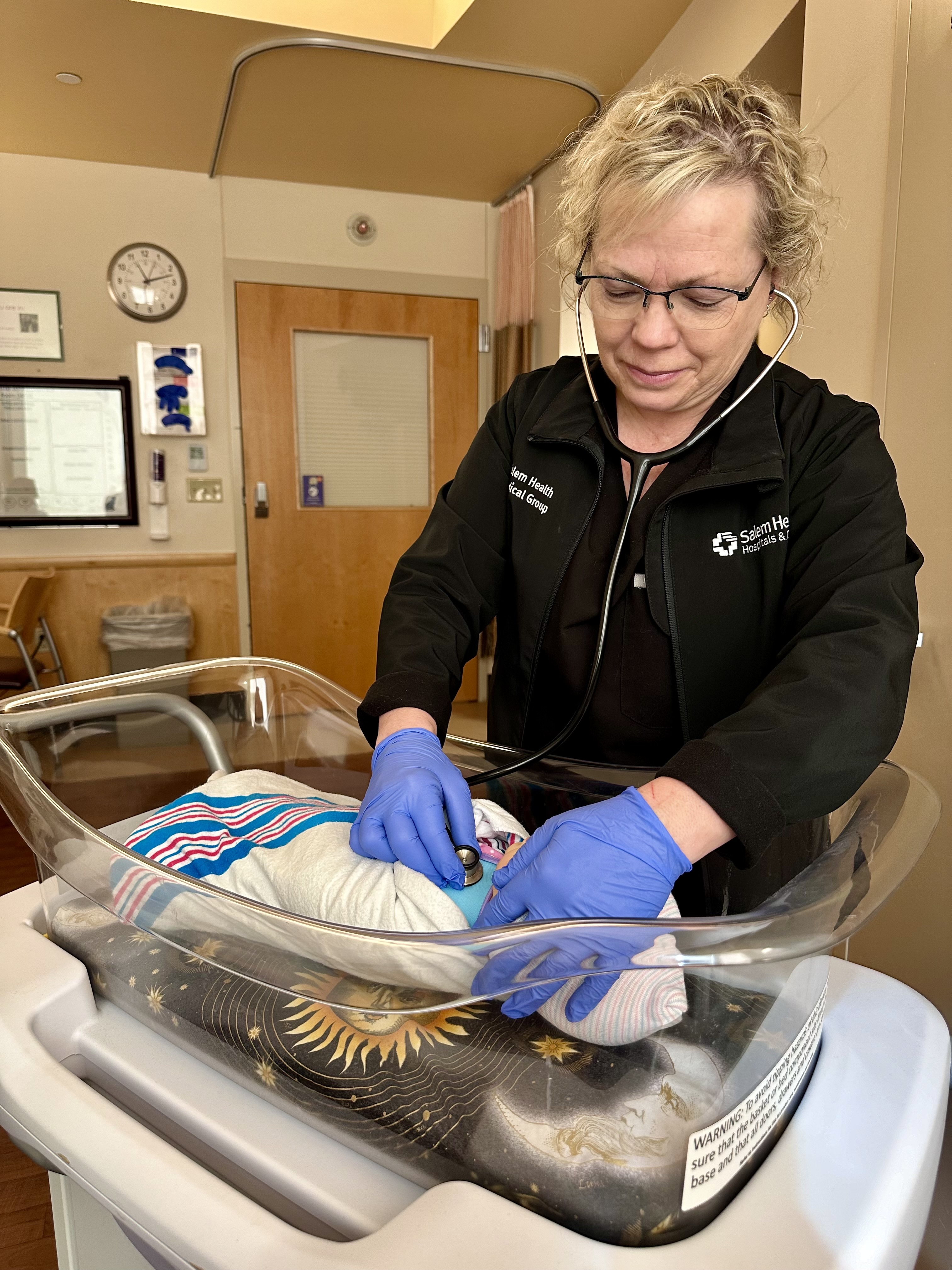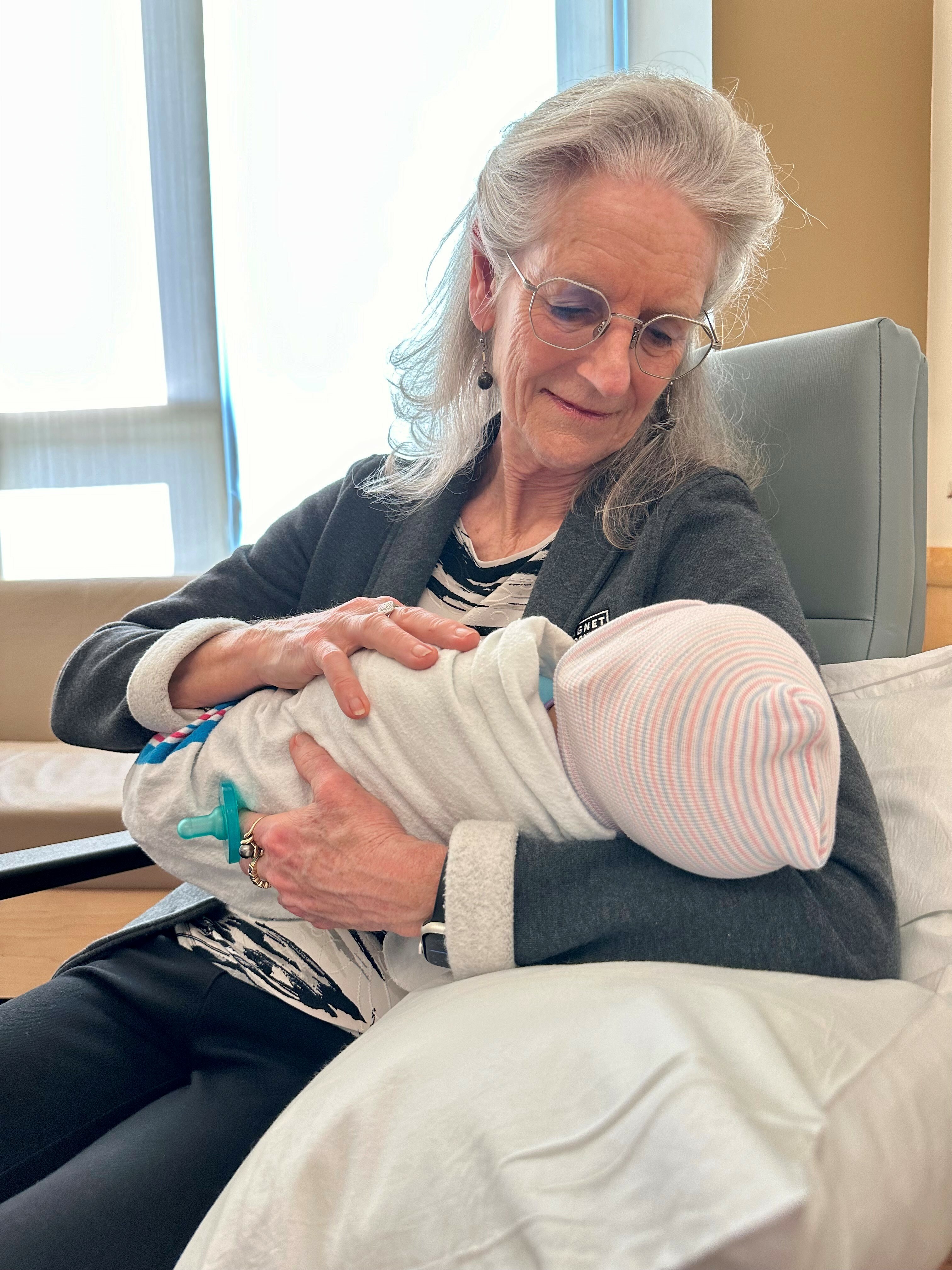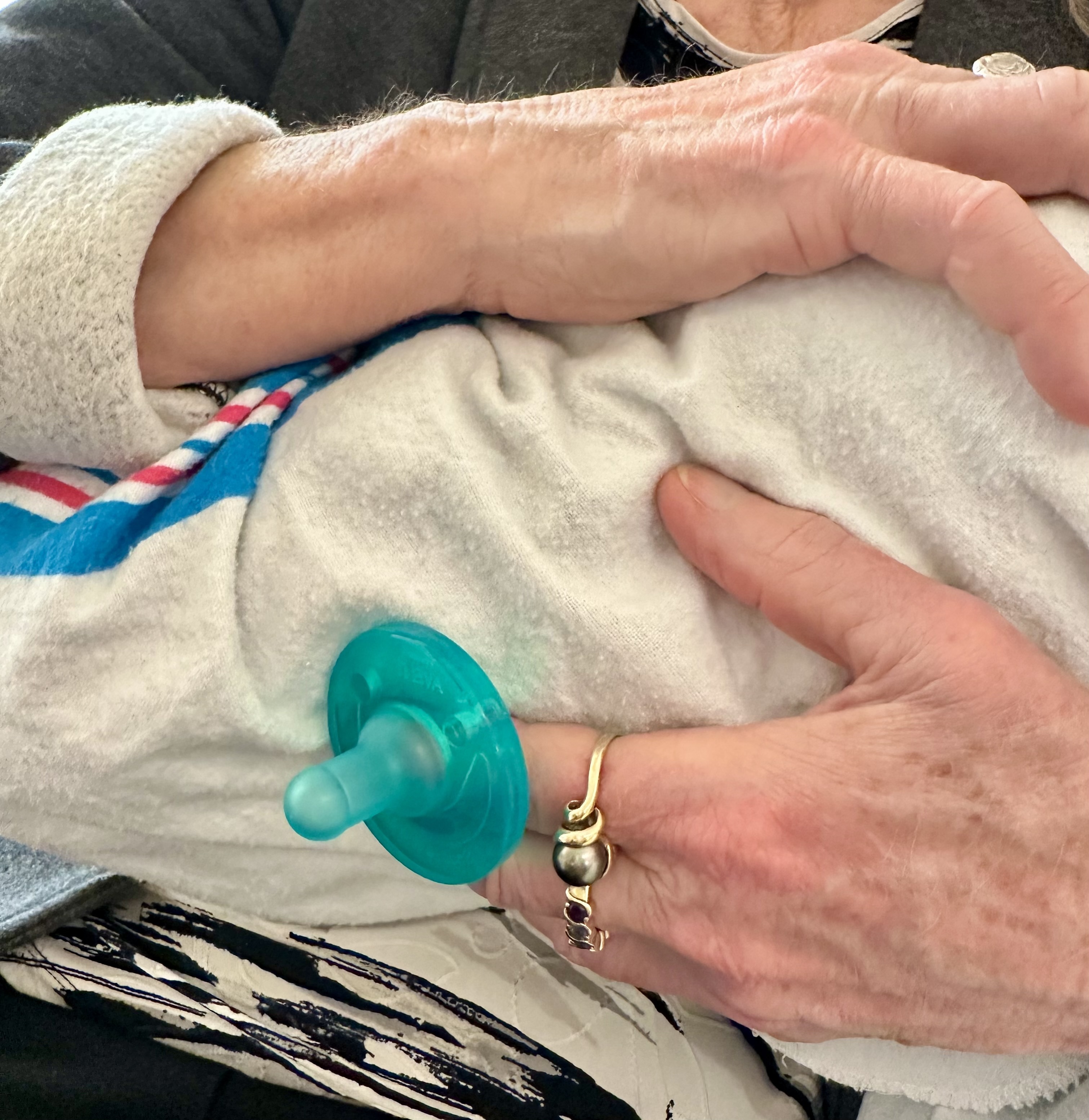Volunteers comfort substance-exposed newborns
07 Apr 2024Meeting the rising challenge with compassion
By: Mark Glyzewski, senior content specialist
The mid-Willamette valley is seeing an alarming rise in births of substance-exposed newborns as our community struggles with opioid abuse. But Salem Hospital providers and volunteers are showing what a difference compassion can make.

Jill Pearson, MD, Salem Hospital’s medical director of pediatric hospital medicine, sheds light on the severity of the situation: "Our team has worked diligently with opiate-exposed newborns," she explains. “However, since August 2023, we have seen an increased number of fentanyl-exposed newborns.”
Unique challenges
Dr. Pearson says babies exposed to fentanyl face severe withdrawal symptoms and often require morphine and feeding tubes. “They behave quite differently [from other babies],” she notes.
Their births are marked by longer hospital stays and significant health challenges, even compared to babies of parents who are being treated for addiction at the time of the birth.
Addiction during pregnancy calls for close monitoring, and Salem Health is actively tracking progress and referring babies for developmental evaluations. However, the introduction of new substances on the streets can make this kind of tracking challenging.
Dr. Pearson says the care team recently added screenings for xylazine, a veterinary tranquilizer starting to find its way into illicit fentanyl.
The big concern is the long-term effects of these substances on a developing brain is not known.
As new and different substances become available to users, Salem Health providers are working together to find solutions. Dr. Pearson says: "Our efforts are decreasing the newborns’ need for morphine and their time in the hospital — while increasing family involvement in their care.”

Compassion for struggling babies
Volunteers have stepped up to provide critical support and comfort to these vulnerable infants suffering from withdrawal and complicated medical needs.
Nancy Dunn, RN, clinical excellence coordinator at Salem Hospital, is also a dedicated volunteer baby cuddler.
Despite the tragic impact of fentanyl on both parents and babies, Dunn says she finds solace in providing comfort and compassion. "The love I poured into the heart of these babies was unstoppable," she says.
Dr. Pearson remembers the overwhelming turnout of volunteers in response to the call for baby cuddlers. "Talk about a heartwarming day! We filled two classrooms with about 50 new volunteers," she says.
These volunteers have become integral members of the care team, offering around-the-clock support when parents are unable to be at the bedside.
The bigger picture
However, the road ahead remains challenging. Dr. Pearson emphasizes the need for government leaders to act.
"In Marion County, it would be great to see more oversight of treatment programs," she says, highlighting the need for comprehensive education targeting substance use during pregnancy and state funding for long-term follow-up for affected children.
But there is hope for a brighter future. "It is a privilege to serve," Dunn affirms, acknowledging the dedication of hospital staff and the essential role volunteers play in making sure these babies receive the care and support they need to thrive.

You can help!
If you are interested in volunteering as a baby cuddler or volunteering in general with Salem Health, learn more at salemhealth.org/volunteers.
NOTE: Salem Health volunteers must be in good standing for one year before they are eligible to become baby cuddlers.